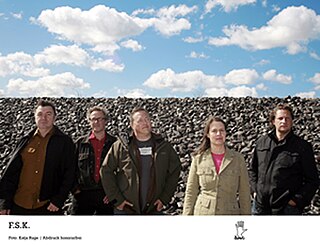An X rating is a film rating that indicates that the film contains content that is considered to be suitable only for adults. Films with an X rating may have scenes of graphic violence or explicit sexual acts that may be disturbing or offensive to some viewers. The X rating is used in different ways by different countries, and it may have legal or commercial implications for the distribution and exhibition of such films. For example, some countries may ban or restrict the sale or rental of X-rated films, while others may allow them only in specific theaters or with special taxes. Some countries may also have different criteria or definitions for what constitutes an X-rated film, and some may consider the artistic merit of the film as a factor in classification. The X rating has been replaced or renamed by other ratings in some countries over time.
A motion picture content rating system classifies films based on their suitability for audiences due to their treatment of issues such as sex, violence, or substance abuse, their use of profanity, or other matters typically deemed unsuitable for children or adolescents. Most countries have some form of rating system that issues determinations variously known as certifications, classifications, certificates, or ratings. Age recommendations, of either an advisory or restrictive capacity, are often applied in lieu of censorship; in some jurisdictions movie theaters may have a legal obligation to enforce restrictive ratings.

An inspection is, most generally, an organized examination or formal evaluation exercise. In engineering activities inspection involves the measurements, tests, and gauges applied to certain characteristics in regard to an object or activity. The results are usually compared to specified requirements and standards for determining whether the item or activity is in line with these targets, often with a Standard Inspection Procedure in place to ensure consistent checking. Inspections are usually non-destructive.
An inspector general is an investigative official in a civil or military organization. The plural of the term is "inspectors general".
Unterhaltungssoftware Selbstkontrolle is the organisation responsible for video game ratings in Germany. In Austria, it is mandatory in the state of Salzburg, while PEGI is mandatory in Vienna.

F.S.K. is a German band that formed in Munich in 1980. The band has been associated with avant-garde fringes of Neue Deutsche Welle of the early 1980s and with techno and house music since the mid 1990s.

The Federal Agency for Child and Youth Protection in the Media, until 2021 "Federal Review Board for Media Harmful to Minors", is an upper-level German federal agency and youth protection panel subordinate to the Federal Ministry of Family Affairs, Senior Citizens, Women and Youth. It is responsible for examining media works suspected to be harmful to young people. These works are added to an official list – a process known as Indizierung (indexing) in German - as part of child protection efforts. The decision to index a work has a variety of legal implications; chiefly, restrictions on sale and advertisement.

A home inspection is a limited, non-invasive examination of the condition of a home, often in connection with the sale of that home. Home inspections are usually conducted by a home inspector who has the training and certifications to perform such inspections. The inspector prepares and delivers to the client a written report of findings. In general, home inspectors recommend that potential purchasers join them during their onsite visits to provide context for the comments in their written reports. The client then uses the knowledge gained to make informed decisions about their pending real estate purchase. The home inspector describes the condition of the home at the time of inspection but does not guarantee future condition, efficiency, or life expectancy of systems or components.

In the Weimar Republic, and later in Nazi Germany, the Film Review Office was responsible for censorship of the film industry within Germany. The Office had two locations: one in Berlin and one in Munich.
German underground horror is a subgenre of the horror film, which has achieved cult popularity since first appearing in the mid-1980s. Horror films produced by the German underground scene are usually trademarked by their intensity, taking on topics that are culturally taboo such as rape, necrophilia, and extreme violence.

Erich Pommer was a German-born film producer and executive. Pommer was perhaps the most powerful person in the German and European film industries in the 1920s and early 1930s.

The Reich Chamber of Film was a government agency which operated as a statutory corporation controlled by the Ministry of Public Enlightenment and Propaganda that regulated the film industry in Nazi Germany between 1933 and 1945. Membership in the association was obligatory for everyone in the German Reich who wanted to work on films in any capacity; lack of membership meant in effect a ban on employment. Based in Berlin, the establishment of the RFK was an important element of the Gleichschaltung process and Nazi film policy.

Universal Soldier II: Brothers in Arms is a 1998 Canadian—American made-for-television science fiction film directed by Jeff Woolnough and starring Matt Battaglia, Chandra West, Jeff Wincott and Gary Busey. It is the second installment in the Universal Soldier franchise. The film recasts all returning characters and introduces a long-lost brother to the hero, played by Wincott. It was followed in the same year by Universal Soldier III: Unfinished Business. In 1999, Universal Soldier: The Return, a theatrical sequel once again starring Jean-Claude Van Damme, retconed the plotline of the TV sequels.

Universal Soldier III: Unfinished Business is a 1998 American made-for-television science fiction film directed by Jeff Woolnough and starring Matt Battaglia, Chandra West, Jeff Wincott, Richard McMillan, and Burt Reynolds. Like Universal Soldier II: Brothers in Arms, none of the actors or crew of the original returned, but most of the cast and crew from the first sequel are present. In 1999, a theatrical sequel starring Jean-Claude Van Damme again, Universal Soldier: The Return, ignored the plotline of the two sequels.

The Dead Eyes of London is a 1961 West German black and white crime film directed by Alfred Vohrer and starring Joachim Fuchsberger, Karin Baal and Dieter Borsche.

Traitor's Gate is a 1964 West German-British co-production of a black-and-white crime film directed by Freddie Francis and starring Albert Lieven, Gary Raymond, Catherine Schell and Klaus Kinski. It was made by Rialto Film using Hammer Films' Freddie Francis and screenwriter Jimmy Sangster updating the 1927 novel The Traitor's Gate by Edgar Wallace to the mid-1960s. The film features a group of criminals planning to steal the Crown Jewels of the United Kingdom from the Tower of London. It was shot at Twickenham Studios and on location around London. The film's sets were designed by the art director Tony Inglis.

The Finnish Board of Film Classification was an official institution of the Finnish Ministry of Education. From 1946 until the end of year 2011, the VET/SFB was responsible for inspecting and rating the content of movies and video games. In the beginning of 2012, the VET/SFB was dissolved and its functions were transferred to the Finnish Centre for Media Education and Audiovisual Media, likewise operating under the Ministry of Education.

Der Stern von Afrika is a 1957 black-and-white German war film portraying the combat career of a World War II Luftwaffe fighter pilot Hans-Joachim Marseille. The film stars Joachim Hansen and Marianne Koch and was directed by Alfred Weidenmann, whose film career began in the Nazi era.
The Deutsche Film- und Medienbewertung is a German federal authority for evaluating and rating film and media, located at Biebrich Palace in Wiesbaden. It was founded by resolution on August 20, 1951 by a regular assembly of all German state ministers of education (Kultusministerkonferenz). The FBW, overseen by the Hessian Ministry for Science and the Arts, renders an expert opinion on films. Its two certification marks for outstanding quality are "worthwhile" (Wertvoll) and "especially worthwhile".

The Protection of Young Persons Act is a federal law in Germany to enforce youth protection in public spaces and regulate media consumption by minors. The act does not apply to minors who are married.

























